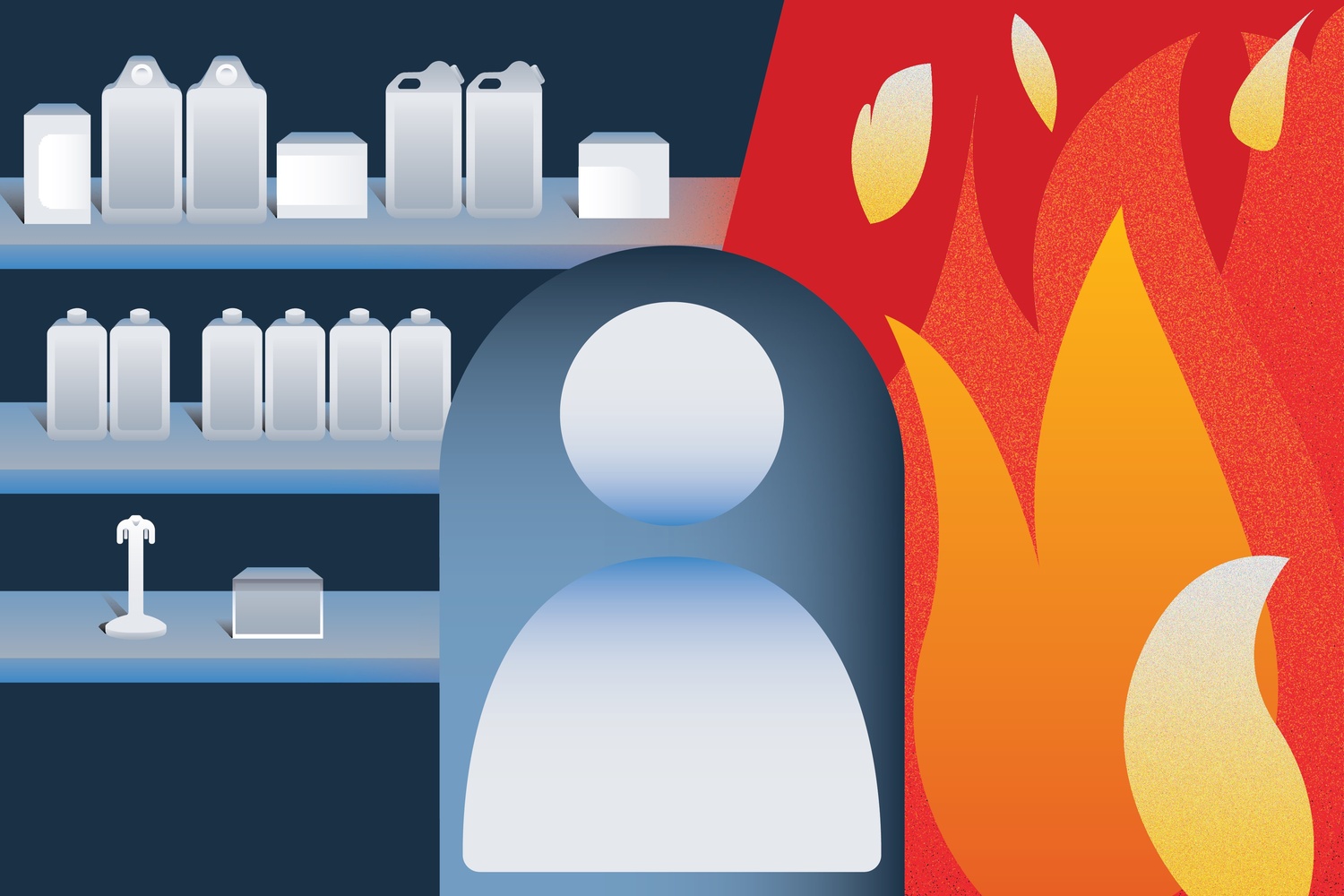Contingency
I remember the sky turning brown, even if I couldn’t see it. School had been canceled, and we were all inside: Mom, Dad, Leo, and I. The buildings beside our house blocked the windows, yet we all knew how the sky looked; its hue contaminated, like the pulp of tamarind dissolving in water.
We didn’t need to be outside to know. Images were everywhere, reality mediated by screens. Online articles, television programs, and social media posts called for people to take the necessary precautions, effectively declaring the state of contingency.
In Mexico, we use the term contingencia to describe situations like this one. Days with air too thick to be breathable. The term also signifies whatever measures may be imposed for amelioration, its urgency synonymous with restriction — whether mandates against vehicle use or prohibitions on outdoor activities. “Hay contingencia,” I often heard as a child, the expression usually a complaint about cars that couldn’t be driven or fútbol games that couldn’t be played. A phrase weighted by inconvenience.
Growing up in the capital, I spent many school days indoors because of pollution. Everyone in the city would celebrate at the eventual sight of clouds, the cleansing they promised at the expense of corrosion. By the time it stopped raining, walls would bear long, vertical white stains: the solid remains of acidic raindrops. But by then the sky would look bluer, cleaner. Restrictions would be lifted and life would reverse to normality. Cars would be driven. Sports matches would resume. The city would return to its routines, unaffected.
Such was the experience of contingency.
It hadn’t occurred to me until recently, while in Cambridge, that this use of the word contingency might differ from how Americans understand it. In English, the word contingent is synonymous with dependent or conditional. To use the word in this fashion is to borrow from modal logic, which defines contingent as any statement that may or may not be true.
Most predictions are contingents: over a hundred species will go extinct tomorrow; Mexico City will run out of water in the next decade; I will witness climate collapse within my lifetime. All statements about the future, neither inevitable nor impossible.
In Spanish, contingente continues to carry this foundational meaning. But contingencia — once used to describe the direst possible future — has slowly become a word we use to name the present. “Hay contingencia,” you may hear today, not describing what might be, but simply what is.
In 2023, two months into my first semester of college, Hurricane Otis became the first Category 5 storm to make landfall on Mexico’s western coast. Only through screens could I see the destruction. The hotel where I would spend spring breaks as a child: now reduced to a pale skeleton. The highways my dad would drive through on our way to Acapulco: choked with debris, blocking humanitarian aid. And all of the families left without a home: their livelihoods displaced, any sense of belonging rapidly uprooted.
It was the strongest hurricane to ever hit the Mexican Pacific coast. And storms will only grow more intense, more ferocious — meteorologists first predicted so in the 1980s. Back then, a future contingent. Today, a disastrous certainty.
It is now 2025, a year that began with burning. Exceptional dryness and blistering winds coalesced to ignite fires in California. Flames blazed red and orange for days, their fury a breathing warning.
“And to think you almost chose Caltech,” my mom told me over FaceTime, her words unintentionally disorienting. It was burdensome to think about my own contingency — how a different sequence of decisions would have led me to a burning Pasadena.
I picture what could have been: myself alone in a different dorm, forced to remain indoors. The air around me, thick with smoke, ashes everywhere. And the sky above me, this time red. Classes canceled because of contingency.
But I wasn’t in Pasadena. Intentional or not, my choices brought me to Harvard instead. It was from my bed in Cambridge that I saw the fires burn, phone resting on my mattress, screen parallel to my face. It was the same screen from which I had witnessed the destruction of Acapulco. The same screen that will one day show me the future unfold.
Brown skies will become the norm. Hurricanes will displace more families. Forests will continue to burn. Or, alternatively, we will come together and act on our knowledge. We will transition toward a sustainable economic model. We will survive this state of climate emergency.
“Hay contingencia,” I say today, not knowing which alternative will crystallize into existence. But this utterance, once confining, now feels anxiously freeing.
The possibilities it opens, our future still largely unwritten.
— Crimson Editorial editor Andrés Muedano can be reached at andres.muedanos@thecrimson.com.



